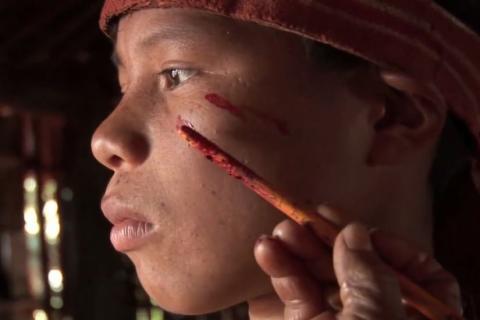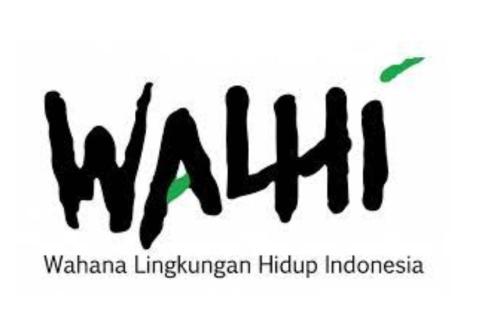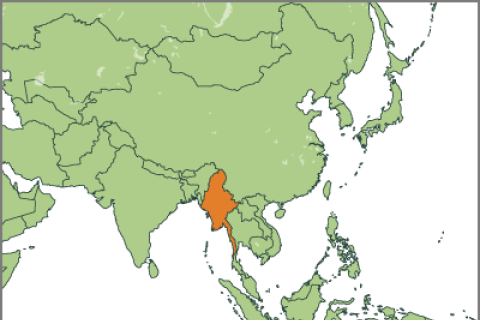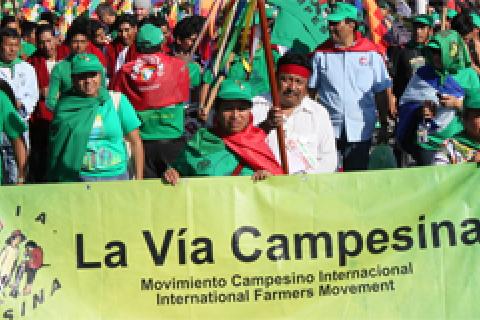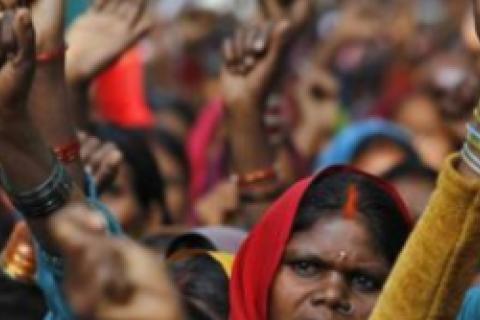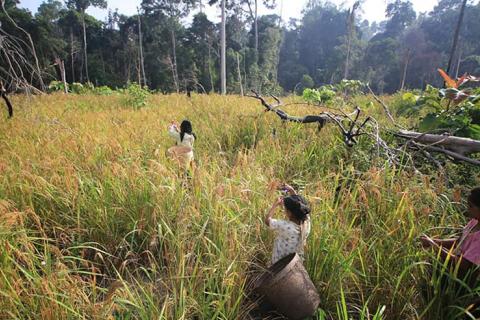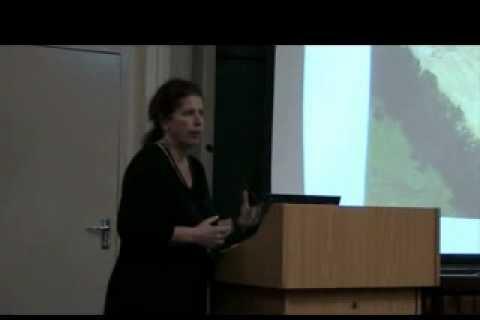The Brazilian organizations Juízes para a Democracia (Judges for Democracy) and CIMI have launched a petition addressed to various Brazilian authorities to demand the urgent demarcation of indigenous lands in the country, particularly in view of the disastrous situation faced by the Guaraní-Kaiowá people in the state of Mato Grosso do Sul. The Guaraní-Kaiowá who live in the PyleitoKue/Mbarakay territory announced that they would rather die en masse than leave their territory in reponse to an eviction order and threats.
Bulletin articles
The state administrative High Court in Medan, has decided in favor of the organization WALHI, cancelling administrative decisions that led to the issuance of the license to the oil palm plantation PT Kalista Alam for an area of around 1,605 hectares in the Rawa Tripa peat swamp forest, Nagan Raya District, Aceh.
The "Second Commercial Farm Asia", a fair that brings together corporate investors and governments from Myanmar and other countries in the Southeast Asia, has taken place in Yangon, Myanmar on 11-12 October. The event was to discuss how industrial agricultural and extractive investments can be expanded and facilitated.
The struggle in Geragai District
Up to 2011, a total of 18 companies had licenses over forest areas for a total of 663,809 ha distributed over 8 Regencies in Jambi Province, Sumatra, nearly 50% of which - 293,812 ha - is being controlled by one large corporation, PT. WiraKaryaSakti (PT. WKS), a subsidiary of Sinar Mas Group. The concession land of PT. WKS is divided in 5 Regencies, namely Tebo Regency, Batanghari Regency, Muaro Jambi Regency, TanjungJabung Barat Regency, and TanjungJabungTimur Regency.
This past September 21, to mark the International Day Against Monoculture Tree Plantations, the Portuguese environmental organizations Liga para a Protecção da Natureza (League for the Protection of Nature) and Quercus launched a petition against a proposed new regime for tree planting and replanting presented by the government.
This September we pay tribute once again to the men and women around the world who have taken up different struggles against monoculture tree plantations in defense of their territories, their forests and their way of life, as opposed to the greed of big corporations and investors who seek to exploit the same land for their own benefit.
Baby food scandals in Africa, tropical forest destruction for candy bars: There are companies like Nestle that attract scandals like light the flies.
Problems arising from the social and environmental impacts caused by industrial timber and pulpwood plantations have been well documented over the past 20 years. Now there is ample evidence that the temporary financial benefits generated by monoculture plantation projects which mostly accrue to affluent consumers of their artificially cheap products, the corporate plantation owners and their banks, are heavily outweighed by the costs of their negative environmental and social effects, which are long-term or permanent.
Sappi Limited, South African producer of pulp and paper, plans the construction of a biomass combustion plant at Ngodwana Mill, Mpumalanga. It has a proposed capacity of about 50 megawatt, which will supply to the public grid. Misleadingly, this investment is called ‘Green Energy Power Project' (GEPP) – in reality, the power is as green as the inside of the Sappi boiler.
Liberia, a small West African country with a population of approximately 3.5 million people, has a predominantly agrarian economy, with high dependency on land and land based resources. The majority of the population lives in rural areas and is engaged in subsistence agriculture and forest-based trade for income generation. Healthcare facilities are poor and in some places non-existent, and the majority of children lack access to safe drinking water. They also lack decent education. The country ranked 182 out of 187 countries on the UNDP Human Development Index in 2011.
